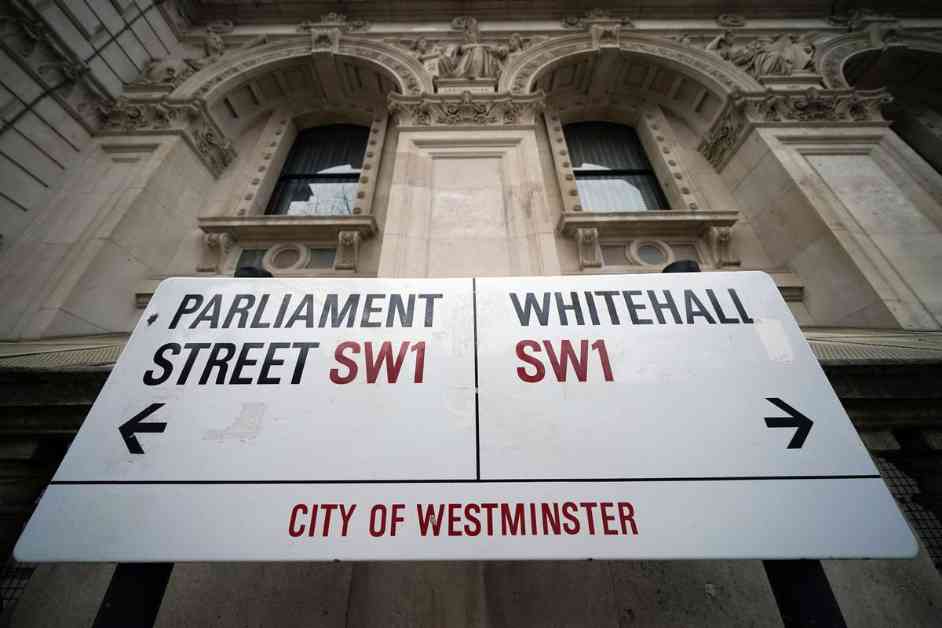Labour Donor’s Civil Service Appointment Sparks Controversy
The appointment of Labour donor Ian Corfield to a senior Civil Service position at the Treasury has sparked controversy and raised concerns over potential conflicts of interest. Corfield, who has donated £20,000 to Labour politicians over the past decade, including £5,000 to Rachel Reeves, was appointed as a temporary director of investment at the Treasury last month. This move has led to accusations from the Conservatives of cronyism and questions about the integrity of the recruitment process within the Civil Service.
Conservatives Demand Investigation into Chancellor’s Actions
Conservative politicians, including shadow Treasury minister Laura Trott, have called for an investigation into Chancellor Rachel Reeves over the appointment of Ian Corfield. Trott raised concerns about a potential conflict of interest, as Corfield’s donation to Reeves and his subsequent appointment to a senior Civil Service role at the Treasury raised red flags about the transparency and fairness of the recruitment process. Trott emphasized the importance of upholding high standards in public life and urged the Prime Minister’s independent ethics adviser to look into the matter.
In a letter to Sir Laurie Magnus, the ethics adviser, Trott highlighted the need to address the growing scandal of cronyism and its detrimental impact on public trust in government institutions. The Conservative party has been vocal in its criticism of appointments within the Civil Service that appear to be based on political affiliations rather than merit, and the case of Ian Corfield has only added fuel to the fire.
Transparency and Accountability in Government Appointments
The controversy surrounding Ian Corfield’s appointment highlights the need for greater transparency and accountability in government appointments, particularly within the Civil Service. The role of the Civil Service is to serve the government of the day impartially and efficiently, and any perception of political bias or favoritism undermines the credibility of the institution.
Critics argue that the recruitment process for senior Civil Service positions should be based on merit and qualifications, rather than political connections or donations. The case of Ian Corfield raises questions about the extent to which political influence may be at play in the selection of candidates for key roles within government departments. This has led to calls for stricter guidelines and oversight to prevent similar incidents in the future.
The role of the Chancellor in overseeing appointments within the Treasury is crucial, as these positions have a direct impact on economic policy and decision-making. Any hint of impropriety or favoritism in these appointments can erode public trust in the government and undermine the integrity of the Civil Service. It is essential that government officials are held to account for their actions and that mechanisms are in place to ensure transparency and fairness in the recruitment process.
Impact of Political Donations on Public Perception
The issue of political donations and their potential influence on government appointments has long been a point of contention in British politics. Critics argue that the practice of donating to political parties in exchange for access or favors undermines the principles of democracy and fair governance. The case of Ian Corfield has reignited this debate and raised concerns about the extent to which political donors may be rewarded with government positions.
The perception of a “revolving door” between political donors and government appointments can erode public confidence in the integrity of the political system. The close ties between donors and politicians raise questions about whose interests are being served and whether decisions are being made in the public’s best interest. The case of Ian Corfield serves as a stark reminder of the need for greater transparency and accountability in the relationship between political donations and government appointments.
As calls for an investigation into Chancellor Rachel Reeves grow louder, the government faces mounting pressure to address the issue of cronyism and restore public trust in the integrity of the Civil Service. The outcome of this investigation will have far-reaching implications for the future of government appointments and the perception of fairness and impartiality within the public sector. It is essential that steps are taken to ensure that appointments are made on the basis of merit and qualifications, rather than political connections or financial contributions.












